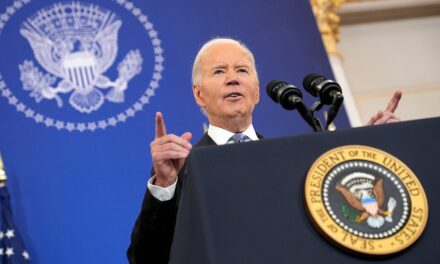CNN’s Jake Tapper recently engaged in a live fact-check session with Vice President Kamala Harris during a broadcast segment. This on-air moment unfolded as Harris was discussing former President Donald Trump’s comments regarding his purported efforts to protect women. Tapper’s interjection, urging for precision, underscores the critical role journalists play in maintaining accountability and accuracy in political discourse. He emphasized the necessity of quoting Trump accurately to uphold standards of truthful representation.
During the discussion, Vice President Harris referred to Trump’s previous statements concerning measures aimed at safeguarding women. Her remarks drew attention to Trump’s controversial rhetoric and policies, triggering a response from Tapper. The CNN anchor interrupted Harris to correct or clarify the quotation, illustrating his commitment to ensuring that public figures are held to rigorous factual standards.
“Just quote him accurately,” Tapper insisted, highlighting the importance of precise communication in political narratives. This on-air exchange is reflective of the broader journalistic effort to fact-check and examine claims made by public officials, particularly those related to contentious or sensitive issues.
The interaction comes at a time when misinformation and misrepresentation are hot-button topics in the media landscape. Efforts to provide clarity and truthfulness are increasingly significant as audiences navigate a deluge of information from various sources. Journalists like Tapper are tasked with the responsibility of parsing statements and ensuring that viewers are presented with verified and trustworthy information.
This particular instance of live fact-checking has drawn attention not only due to the subject matter but also because it involved figures of substantial public interest. The discourse around women’s protection often intersects with wider social, political, and cultural dialogues, and precise reporting is essential in fostering informed public debate.
Controversies regarding Trump’s statements on women’s issues are not uncommon, given his history of making remarks that have sparked debate. The former president’s rhetoric has been subject to scrutiny and criticism, prompting journalists and political figures alike to engage with his statements critically and analytically.
Tapper’s real-time correction serves as a reminder of the influential role that news media plays in shaping public understanding. As political figures make comments that influence public perception, the media’s function in verifying and contextualizing these statements becomes increasingly vital. The broader media ecosystem continues to grapple with the challenges of promoting accuracy and combating misinformation as integral components of democratic engagement.
In summary, the exchange between Harris and Tapper serves as a significant example of the media’s responsibility to facilitate factual and transparent conversations within the public sphere. The commitment to accurate quoting is essential not only for journalistic integrity but also for empowering informed citizenry in today’s complex information landscape.
































